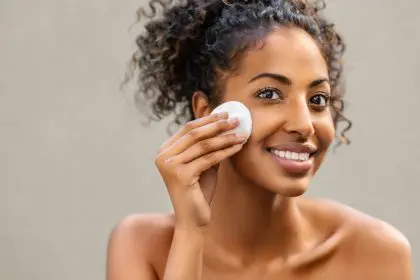Behind the spotlights and sequined gowns lies a psychological contradiction that defines many beauty queens: a blend of narcissistic behavior and profound self-doubt about their appearance. This paradox, deeply rooted in the pageant industry’s demands and societal pressures, offers insights into the complex relationship between external validation and self-worth.
The perfectionist’s paradox
Beauty pageants create an environment where perfection isn’t just encouraged—it’s required. Contestants undergo rigorous training, from mastering runway walks to perfecting their public speaking. This relentless pursuit of flawlessness often leads to a heightened awareness of every perceived imperfection, fostering narcissistic traits as a defensive mechanism against deep-seated insecurities.
The pageant circuit’s demanding nature creates a unique psychological dynamic where contestants develop meticulous attention to detail while learning to project unwavering confidence. Yet beneath this perfected exterior, many struggle with intense self-criticism and doubt. The very qualities that make them successful in competition—attention to detail, high standards, and intense self-awareness—often fuel their internal struggles with self-image.
The validation cycle
External validation plays a crucial role in shaping beauty queens’ psychological makeup. Pageantry’s scoring system, audience reactions, and judge feedback create a dependency on others’ approval. This reliance transforms casual compliments into necessary affirmations and criticism into potentially devastating blows to self-esteem. Many beauty queens find themselves caught in an exhausting cycle of seeking validation while simultaneously doubting its authenticity.
The constant need for external approval often leads to the development of sophisticated social skills and charm, which can appear as narcissistic traits to observers. However, these behaviors frequently mask a fragile self-image that requires continuous reinforcement. The more successful a beauty queen becomes, the more pressure she faces to maintain an impossibly high standard of perfection.
Digital age pressures
Social media has intensified the scrutiny beauty queens face, extending their stage presence into a 24/7 digital performance. No longer limited to competition venues, they must maintain a perfect image across multiple platforms while navigating real-time public feedback. This constant exposure creates an environment where even the smallest perceived flaw can trigger waves of self-doubt.
The digital landscape also amplifies the comparison trap. Beauty queens find themselves measuring their worth against carefully curated and edited images, creating an impossible standard of perfection. The pressure to maintain an idealized online persona while dealing with immediate public feedback can exacerbate both narcissistic tendencies and underlying insecurities.
Early influences and industry demands
Many beauty queens start their pageant journey during childhood or adolescence, critical periods for psychological development. This early exposure to competitive beauty standards often results in complex relationships with self-image and validation. Young contestants learn to associate their worth with their appearance and performance, creating deep-rooted patterns that can persist well into adulthood.
The pageant industry’s structure reinforces this psychological duality. Contestants must project unwavering confidence while gracefully accepting criticism, maintain rigid physical standards while appearing effortless, and compete fiercely while displaying genuine warmth and cameraderie. This balancing act requires tremendous psychological resilience and often leads to the development of a professional persona that may differ significantly from their private self-image.
The healing journey
Some beauty queens successfully break free from this pattern through professional counseling, mentorship programs, and support networks. These resources help them develop authentic self-esteem independent of their pageant success. The journey often involves learning to separate their worth from their achievements and appearance, while maintaining the positive aspects of their pageant experience such as discipline, poise, and social awareness.
Industry evolution
The pageant industry shows signs of positive change, with many competitions beginning to emphasize personal achievement over physical appearance. This shift includes celebrating diverse body types, backgrounds, and definitions of beauty. More organizations are providing mental health support and focusing on contestants’ overall well-being rather than just their external presentation.
Looking forward
Understanding this psychological paradox offers valuable insights not just about beauty queens, but about broader societal pressures and the complex relationship between external validation and self-worth. The coexistence of narcissistic tendencies and beauty-related insecurities reflects a deeper struggle with authenticity in a world obsessed with perfection.
As pageants evolve and beauty standards diversify, there’s hope that future generations of contestants can find healthier ways to pursue their goals while maintaining strong self-esteem. This evolution may help transform the industry from one that potentially reinforces insecurities into one that truly celebrates authentic beauty and personal growth.
The path forward involves recognizing that true confidence comes not from perfection but from self-acceptance and growth. For many beauty queens, this means learning to balance the drive for excellence with genuine self-compassion, transforming their experience from one of constant judgment to one of empowerment and authentic self-expression.
This story was created using AI technology.












